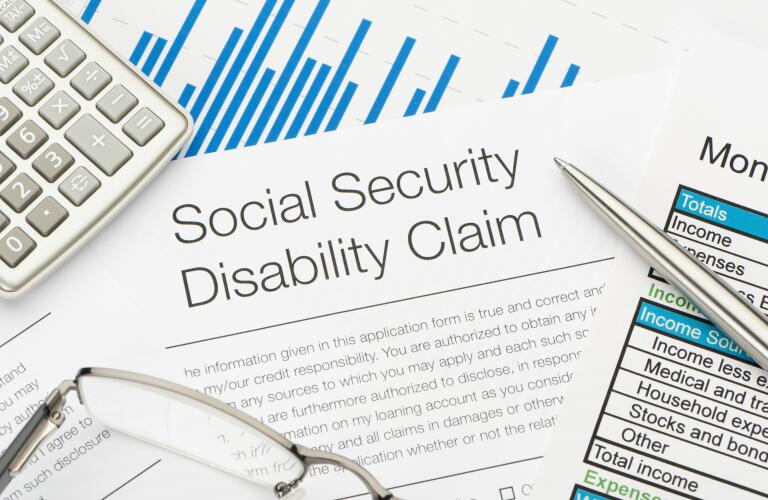If your asthma significantly impacts your life, including your ability to work, you may qualify for Social Security Disability Insurance (SSDI) and receive monthly financial assistance.

It’s estimated that about
Here’s some important information to help you understand how the process works.
Asthma is a chronic disease that affects your breathing. During an asthma attack, your airways narrow and produce excessive mucous, leading to the typical symptoms of coughing, wheezing, and shortness of breath. Many people with asthma use a quick-acting “rescue” inhaler to help open up the airways when symptoms arise, as well as long-acting medications like inhaled steroids to decrease inflammation and prevent future attacks.
About 5 - 10% of people with asthma have what is known as severe asthma. In some cases, severe asthma remains uncontrolled no matter what type of treatment is attempted. Other cases of severe asthma require high doses of inhaled steroids or oral steroids, along with other long-acting medications, to control it. People with severe asthma may still suffer from asthma attacks even when they are doing everything right. They may find themselves frequently in the emergency room or hospitalized due to the severity of their attacks.
Not everyone with asthma will qualify for Social Security disability since most cases can be managed by following a treatment plan. To receive benefits, you must be able to prove your asthma is severe enough to prevent you from performing your job. You must also have worked long enough at a job where you paid Federal Insurance Contributions Act (FICA) premiums in the past.
Income limits
The Social Security Administration (SSA) will first check to see that you are not working and making enough money to meet the “substantial gainful activity” level. As of 2023, this means your asthma must be preventing you from making more than $1,470 per month. Your inability to work as a result of your asthma must be expected to last for at least the next 12 months.
Evidence of severe asthma
From there you must be able to provide medical evidence to demonstrate the severity of your asthma. One way of doing this is by meeting the criteria specified by the SSA. This means you must have:
- Been hospitalized at least three times in one year as a result of your severe asthma. Each hospitalization must be at least 30 days apart and have lasted for at least 48 hours.
- A low FEV1 value. This is your forced expiratory volume, meaning how forcefully you can breathe out for one second. It’s measured using a machine called a spirometer. The SSA provides a chart for FEV1 values based on your age, sex, and height. Your FEV1 value must be lower than what’s listed in the chart.
If you don’t meet the SSA criteria, you may still qualify for Social Security disability if you can show your asthma is severe enough to not only prevent you from holding your current job, but also from any other kind of meaningful work. You should have medical records from the last 12 months that show:
- Your hospitalizations
- What treatments you received
- Test results, such as lung function tests and arterial blood gases (ABGs), which shows how well your body moves oxygen and removes carbon dioxide
- Notes from your regular physician
- Your daily treatment plan and your compliance with it
Taking this into account, SSA will look at your age, education, and previous work experience to determine if there’s any other type of work you can do with your severe asthma. If they determine you don’t have any work options, you may able to get disability benefits.
If your severe asthma is interfering with your ability to work, you can find out more on the SSA website. Navigating the Social Security disability process takes some time and may feel a bit confusing along the way, so don’t be afraid to ask for help. You may consider retaining an attorney experienced in dealing with the Social Security claims and appeals. Make an appointment with your doctor as well to discuss what documentation you will need to apply for benefits.











